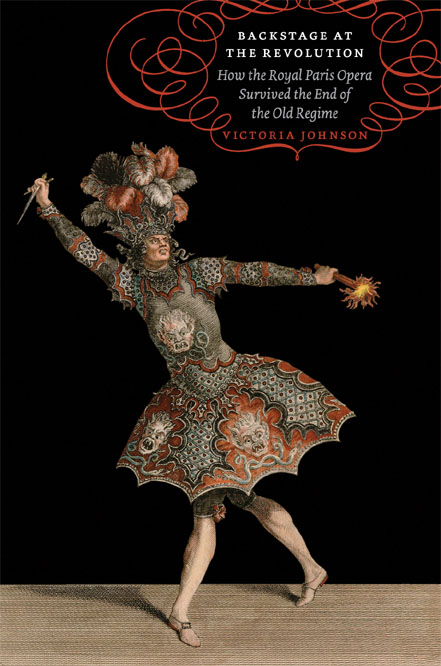Backstage at the revolution

At the start of NPR’s Bastille Day-inspired story this morning about the music of the French Revolution, listeners were asked to “imagine it’s the year 1789 and you are waking up in Paris. You might hear an angry mob outside your window, about to storm the Bastille prison.” For those who wish to take this kind of mental journey back in time, Victoria Johnson’s Backstage at the Revolution zooms in from the birds-eye view to the street level, where some of that mob is busy searching for weapons—at the Paris Opera.
The Opera, as Johnson tells it, began the Revolution at center stage when a part of the crowd on its way to the Bastille stopped at the opera house for the arms they thought would be stashed inside. The organization’s official caterer, Charles Mangin, unlocked the doors and, as he later wrote, “armed the citizens of the District of St. Martin des Champs with halbards, pikes, and sabres belonging to the Opera.”
The long story of the Opera’s Revolutionary life neither begins nor ends, of course, on that fateful July 14. Johnson’s cultural history explains how, despite its reputation for despotism and wasteful extravagance, the Opera survived the Revolution in large part because of its image as a unique icon of French culture.
As NPR’s Miles Hoffman surmised in this morning’s story, “the people who were in power were aristocrats or members of the upper middle class, and they didn’t necessarily have an allergy to high culture. They co-opted classical music. They inspired, or directed, important composers of the time to write great ceremonial pieces for big outdoor celebrations. So music became, in a sense, a tool of the revolution.”